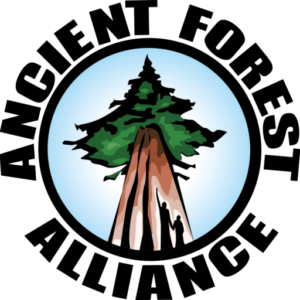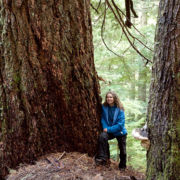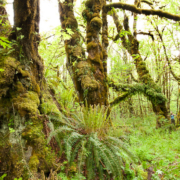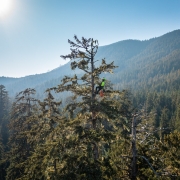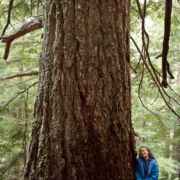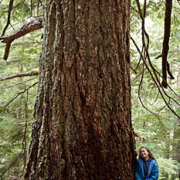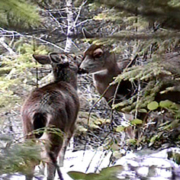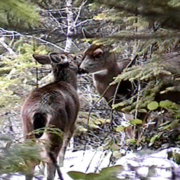Environmentalists are raising the alarm about the logging of old-growth Douglas firs taking place near Port Alberni.
They are calling on the provincial government to protect a 500hectare tract of old-growth forest they say biologists have classified as critical habitat for wintering deer and nesting endangered Queen Charlotte goshawks.
Island Timberlands owns the area in question on McLaughlin Ridge, southeast of the city.
Two local groups are asking the government to purchase the land from IT in order to protect it.
Members of the Ancient Forest Alliance and Friends of McLaughlin Ridge say the land was formerly protected as a winter feeding area for black-tailed deer and as a known nesting area for the endangered goshawk.
In 2004, the B.C. government removed 88,000 hectares of land now owned by Island Timberlands from their Tree Farm Licenses.
Of the 500-hectare tract, the groups say 100 hectares have already been logged, but the core portion of the stand remains intact.
Ancient Forest Alliance spokesperson Ken Wu said he hopes the logging has stopped for the winter, to buy some time to try to save what remains.
He added 99% of the coastal old-growth Douglas firs have already been logged on Vancouver Island.
“It’s pretty crazy we have to fight over the last 1%,” Wu said. He explained the area is covered in lichens, which are a vital winter food source for deer. The trees also provide shelter, he added. Bed Bath and Beyond Wedding Registry
This concerns environmentalists because they say the black-tailed deer population is in decline, in large part due to the destruction of their winter habitat.
Less deer, Wu said, means less food for wolves, cougars, bears and subsistence hunters.
The Queen Charlotte goshawk, a bird of prey, is “red” – listed and considered endangered, with only about 300 nesting pairs known to exist, he said.
McLaughlin Ridge is a known nesting area for these birds.
Wu said any recovery plan for this species should include protection of one of their few remaining known nesting areas. The groups contend Victoria created “this mess” by largely deregulating these forest lands.
“We will be asking Island Timberlands to show good will to the community by putting their logging plans for McLaughlin Ridge on hold until funds are put forward to protect this critical old-growth habitat,” said Jane Morden, coordinator of the Port Alberni-based Friends of McLaughlin Ridge.
IT spokesperson Morgan Kennah could not confirm whether logging in the area will continue this winter, although she said IT does have harvest plans across that general area, and has completed some “clear-cutting with variable retention levels” there.
“IT has not received a formal proposal to purchase that area and actions will not be stalled indefinitely for a proposal that may or may not come to fruition,” she said.
Kennah acknowledged the area is considered suitable habitat for deer and the Queen Charlotte goshawk, and IT does alter its helilogging when young of the latter species are hatching to reduce the noise impact.
“Wildlife procedures are in place that dictate modified practices,” she said, adding that logging in areas identified as wildlife habitat are planned in consultation with a registered biologist.
As for IT’s critics, Kennah said residents can learn more about the company’s logging plans by attending the next West Island Woodland Advisory Group meetings on Dec. 8 at the AlberniClayoquot Regional District office.
Direct link to Alberni Valley Times article: https://www2.canada.com/albernivalleytimes/news/story.html?id=d7fe1099-d963-4e1a-b9ef-d878c7eefeef
